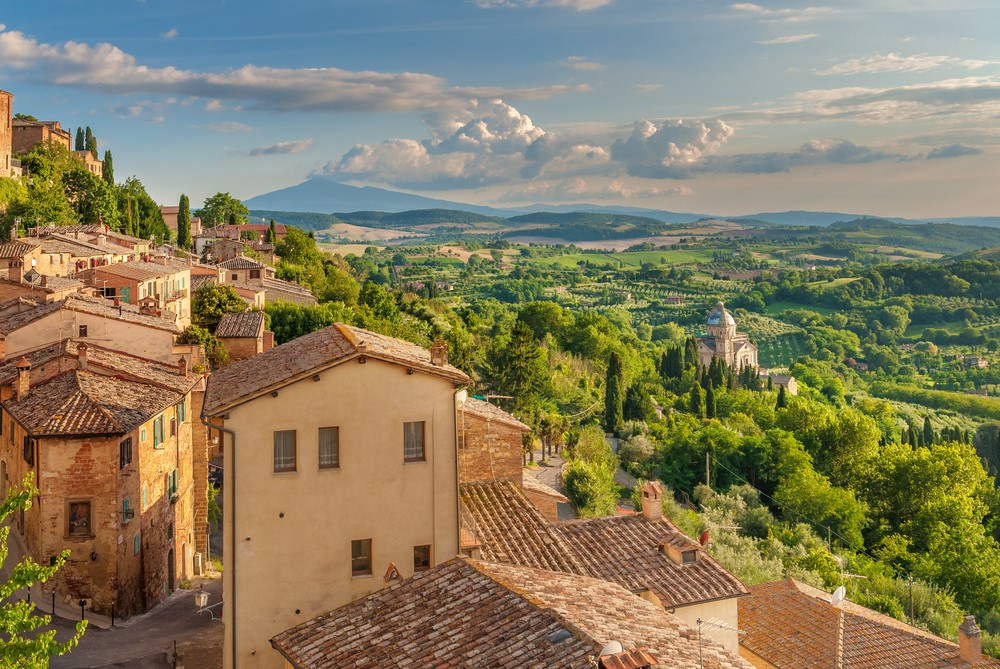On our recent Chairman’s Circle Private Wealth Cruise from Rome to Marseille – with stops along the way in Villefranche-sur-Mer, Saint-Tropez, Corsica, Ibiza and other spots easy on the eye – a few of my colleagues and I decided to skip the tour of Florence.
We’d been there a few times before and so decided to spend the day visiting some of the smaller towns in Tuscany.
We hired a private driver – a chatty, middle-aged fellow named Ignazio – and headed out.
Along the way, I asked Ignazio whether he and his fellow citizens were optimistic about Italy’s future.
Despite anemic economic growth of just 1.4% and unemployment in the south that is nearly 20%, he said, “Yes.”
“But,” he added, “only if we get out of the euro and cancel our debt to the bankers.”
Come again?
“We have everything we need in Italy,” he said. “Why do we need the EU?”
When it comes to good wine, great food, beautiful people and pleasant scenery, Italy does indeed seem to have it all.
But that is hardly “everything.”
Italy has few energy resources, for example. If Italians had to depend on domestic oil and gas, it’s not likely that they could heat their homes or drive their cars…
Or turn on the lights, for that matter. A major share of the country’s electricity is imported from France and Switzerland.
Nor are they able to watch TV on an Italian-made set or talk on an Italian smartphone.
Ignazio insists that the euro makes everything too expensive in his country. He pointed to the growing movement to return to the lira.
“Tourists used to visit our vineyards and ship home four or five cases of wine. Now they ship home one or two.”
He’s right about that.
A weak currency makes domestic goods cheaper and exports more competitive. However, it has the opposite effect on imports.
Italy spends billions annually on foreign textiles, chemicals, food, beverages, electronics and machinery…
Clothing and cars, too. (Not every Italian can afford to drive a Lamborghini or wear Versace and Armani.)
Understandably, the typical citizen sees Italy’s national debt as a bummer. It tops $2.77 trillion.
That’s equal to 138% of its GDP. And it’s making the bankers – those greedy capitalists who lent Italy money when it needed it – nervous.
This is now playing out in the bond market.
Populist politicians – responding to Ignazio and his likeminded compatriots – have proposed a burst of new government spending and adopted an anti-euro policy position.
The result? Last week, investors drove Italy’s 10-year government bond yields up half a percentage point to 2.32%, compared with a yield of just 0.56% on 10-year German bonds.
That was the fastest increase in five years. Or, at least it was until yesterday.
On Monday, Italian stocks and bonds took a shellacking after President Mattarella vetoed the appointment of a euro-skeptic economy minister, triggering a potential constitutional crisis.
The possibility of fresh elections sent Italian 10-year government bond yields to 2.68%.
The 2.3% yield differential over German 10-year bonds is the market beginning to price in the unthinkable…
Italy leaving the eurozone.
The problem for Italians – as the Greeks and Argentines learned – is that there are serious consequences for nations that chap their creditors.
Inflation and interest rates skyrocket. Stocks and bonds crash. The economy rolls over.
Things get really ugly, really quickly.
And if Ignazio dislikes foreign bankers now, he’s really going to be unhappy when they start dictating what taxes and spending will be.
In short, investors have shot off a flare in the Italian bond market. Let’s hope it doesn’t turn into a forest fire.
Because if Italy gets serious about repudiating its debt and leaving the euro, European stocks and bonds are in for a serious adjustment.
And it won’t be upward.
Good investing,
Alex
Thoughts on this article? Leave a comment below.
